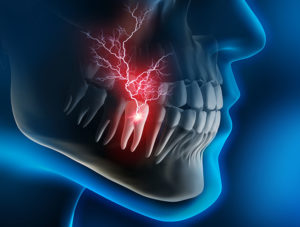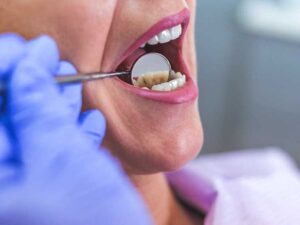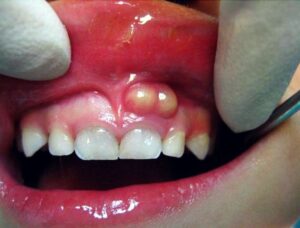
Toothache: Causes, Prevention and Treatment
Ever had a bad toothache when you are at a restaurant or in the middle of the night? There is nothing worse than the pain of a tooth sleepless nights and hunger strikes, soothe it with ice-creams or ice packs, taking a number of un-prescribed painkillers. We often come across various excuses to ignore the pain and find our own way to deal with it. You try to soothe yourself by searching multiple things on google and trying all sorts of home remedies. Once you feel things are getting out of control it’s only then that you think you should visit a dentist.
A toothache, also known as odontalgia, is pain around or in the tooth. It can be caused by anything from a stuck popcorn hull between your teeth to a bacterial infection in a broken tooth. Less serious or mild toothache usually causes temporary irritation to the gums. But more serious toothaches need to be treated by a dentist as soon as possible.
Millions of people have suffered from tooth aches once or more in their lifetime. The amount of tooth pain can vary depending on various factors, from the severity of dental nerve damage, the longevity of the tooth pain, how long/ how frequently the tooth pain has been occurring in the mouth or the type of toothache.
The level of tooth pain may be mild or severe depending on the underlying cause. When a toothache is happening, it is better to know what is going on at an early stage – before it gets possibly worse.
It all begins with sensitivity towards cold beverages or the slightest gush of air. This is one stage where we use anti-sensitive toothpaste or home remedies like keeping a piece of clove in between teeth to give temporary relief. However, we do not visit a dentist. Then comes a time when it becomes unbearable with food lodgements and unable to eat anything. It becomes an irreversible condition where either the tooth has to be removed or undergo root canal treatment to prevent further infection.
Dental pain can be acute or chronic. Acute dental pain is often sudden with swelling and warmth near the site of pain with onset within a few days persisting for approximately 14 days.
Chronic dental pain, on the other hand, is long-lasting with vague sensation but here the damage to the tooth has surpassed the preventable stage and the infection has usually travelled deeper into the deeper layers towards the nerve chamber. The tooth might be tender on touch or pressure.
The best dentists in Delhi are experts at diagnosing and treating toothaches.
Symptoms of Toothache
The main symptom of a toothache is pain in your tooth, around it or in your mouth. However, the pain can present itself in multiple ways and it can vary. Symptoms of toothache include:
- Pain that only occurs when pressure is applied to the tooth/ biting or chewing food.
- Constant, throbbing and sharp pain
- Teeth sensitivity to hot/cold
- Painful and swollen gums
- Bleeding or discharge from gums
- Headache or fever
- Bad taste in the mouth (if a tooth is infected)
Causes!
Toothache is most usually the result of trauma or injury that cavity causes. Dentin is the softer layer underneath the enamel and trauma or injury is caused if the decay gets into the dentin. Other causes include the following:
- Fractured or Damaged Tooth – This can expose the sensitive dentin along with its nerves. Fractures don’t have to be obvious, because sometimes the fracture line can be deep into the tooth and cause toothache every time pressure is applied with chewing or biting. This is also known as cracked tooth syndrome.
- Dental Caries and Tooth Abscess – Pus accumulation under the infected tooth that has been ignored for long time. This pus is formed by a bacterial infection.
- Loose/ Broken Filling – The nerve inside the tooth can be exposed if you lose a filling.
- Old Broken Crown/Cap – An old leaky crown/cap can cause accumulation of food inside it hence decaying the tooth and causing infection in the gums.
- Debris Stuck in your Teeth – Inorganic and organic matter stuck in your teeth can cause pressure between the teeth.
- Teeth Grinding or Clenching – This habit which is usually done unconsciously at night can irritate the nerves to the point where you experience a toothache.
- Gum Infection – Gum disease like gingivitis can cause pain or toothaches.
- Jaw or Mouth Injury – Toothache can be caused by jaw or mouth injury that is a result of blunt force trauma on the facial area.
- Temporomandibular Joint Disorders – Temporomandibular joint disorder is a pain in the jaw joint, but sometimes it can also affect the teeth, head and neck.
- Exposed Root Surfaces – If there is no gum or bone that covers the root of the tooth, it can be sensitive to stimuli like temperature changes or brushing teeth
- Wisdom Teeth – Wisdom teeth, also called third molars, are the last set of teeth to appear in your mouth. Sometimes, there isn’t enough space for them and they become partially or fully trapped below the gum and in the jawbone. Because it is difficult to clean them, they can cause several problems like dental decay or gum infection.
Sometimes, you can experience sensitivity to sweet food or those that are hot or cold. Sweet sensitivity is often a sign of decay, while temperature sensitivity can be due to
- Root Exposure (Gum Recession)
- Cracked Tooth Syndrome
- Bruxism (Clenching and Grinding your Teeth)
- Inflamed or Infected Pulp (the nerve of the tooth)
The reputed dental clinics in Delhi have all the treatment modalities to treat the toothaches caused by various causes.
What Can I Do to Stop My Toothache?
As your tooth won’t stop hurting by itself, you’ll need to see a dentist as soon as possible. Even if the pain subsides a bit, that doesn’t mean that the problem has gone away.
- The first thing to do is call a dentist.
- Explain that you’re experiencing pain and want to book an emergency appointment. Most dentists keep slots open in their schedules for emergency appointments.
Meanwhile, some temporary relief from pain may help:
- Rinse your mouth often with water. An antibacterial mouthwash may be helpful too.
- Eat soft foods to avoid pressure.
- Avoid things that are very hot, cold, sweet or spicy.
- Try some numbing gel/ulcer gel on the gum.
- Take care if you use non-prescription painkillers.
Follow the Instructions for use:
- Ask a healthcare professional about compatibility with other medications.
- If you have prescribed pain-killers, check and follow the recommended dosage.
Remember:
- a pain killer only disguises the problem.
- do not rely on them, and
- do not avoid treatment.
When Should you See a Dentist?
Any time you start experiencing dental sensitivity or pain, you should see your dentist. If you are aware of your health, that’s an indicator that something needs attention.
For example, if you have temperature sensitivity, your dentist can help by:
- Applying a desensitizing varnish to your root surfaces
- Diagnosing TMJ disorder (temporomandibular joint disorder, of which bruxism is a symptom) and supplying you with a customised nightguard
- Performing a root canal
- Repairing a filling
- Preparing a cracked tooth for a crown
Other signs you need to see your dentist are as follows
- Bleeding gums
- Chronic bad breath
- Jaw/face swelling
- Earache and jaw pain
- Chronic headaches
- Neck aches
To book an appointment with us in, ‘Smile Delhi – The Dental Clinic’– call us on +91-9811106871 or whatsapp Dr. Suprriya B Bhatia on +91-9811106377. You can also mail us on [email protected]
“We Care To Make You Smile”
Posted by: Dr Hema

































































